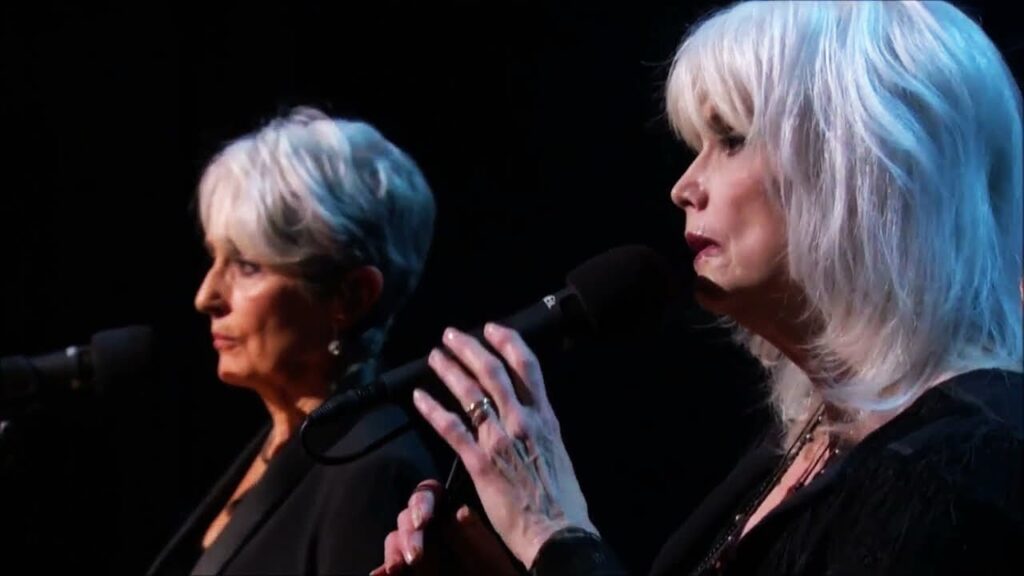
A Timeless Plea for Compassion and Relief from Suffering
The live rendition of “Hard Times Come Again No More” by folk legend Joan Baez and the incomparable country-folk artist Emmylou Harris from Joan Baez’s 75th Birthday Celebration in January 2016, is far more than just a musical performance; it’s a poignant, living echo of American history and a profound statement on enduring human struggles. This powerful duet, recorded live at The Beacon Theatre in New York City and released later that year on the concert album Joan Baez 75th Birthday Celebration (Live), may not have been a contender on the modern chart listings—its very nature as a live rendition of a 19th-century parlor song defies such a metric—but its chart position in the grand tapestry of human emotion is eternally high. Instead of a fleeting spot on the Billboard Hot 100, this song occupies a permanent place in the canon of American social conscience.
📜 The Story Behind the Song’s Long Shadow
The true story of “Hard Times Come Again No More” reaches back to 1854, long before either Baez or Harris were born. It was penned by Stephen Foster, a man often called the “father of American music,” during a period of personal and national hardship, including economic distress and a cholera epidemic in his hometown of Pittsburgh. Foster’s lyrical gift lay in transforming common sentiment into timeless art. He wrote the song not as a mere lament, but as an impassioned plea to the fortunate to “pause in life’s pleasures and count its many tears,” thereby fostering empathy for “the poor.” Its meaning is direct and universally resonant: a prayer for an end to the weary cycles of poverty and suffering. The original song gained immense popularity during the American Civil War, used as a powerful expression of the suffering and hardship endured by the common person.
The decision by Baez and Harris to perform this classic in 2016—two towering figures whose careers have always intertwined exquisite artistry with deep social awareness—was not arbitrary. For Baez, whose very life has been a commitment to social activism and protest, performing this song is a natural extension of her mission, a reminder that the “hard times” of the 1850s, while changed in form, still linger today. For Harris, whose voice lends a heartbreaking, crystalline purity to the country-folk tradition, the song fits perfectly into the themes of compassion, faith, and struggle that permeate her finest work.
🎶 A Moment of Reflective Nostalgia
Listening to this live track, the emotional resonance is palpable. The blend of Baez’s distinctive, still-compelling alto and Harris’s gentle, angelic harmony creates a spiritual, almost hymnal quality. It’s a performance that evokes a deep sense of memory, transporting older listeners back to their own encounters with this tune—perhaps an old record, a school pageant, or a sing-along—reminding us all that while our personal journeys are unique, our shared human experience of facing and overcoming adversity binds us together.
The simplicity of the arrangement for this duet strips away any artifice, leaving only the power of the words and the sincerity of the delivery. The song’s enduring relevance lies in its unwavering focus on the marginalized, the “frail forms fainting at the door.” This live rendition is a powerful torch passed from one generation of artists to the next, emphasizing that true wealth is measured not by accumulation, but by the capacity for sympathy and action. It’s a moment of reflective nostalgia that doesn’t just look backward with fondness, but asks us to look outward with renewed purpose.